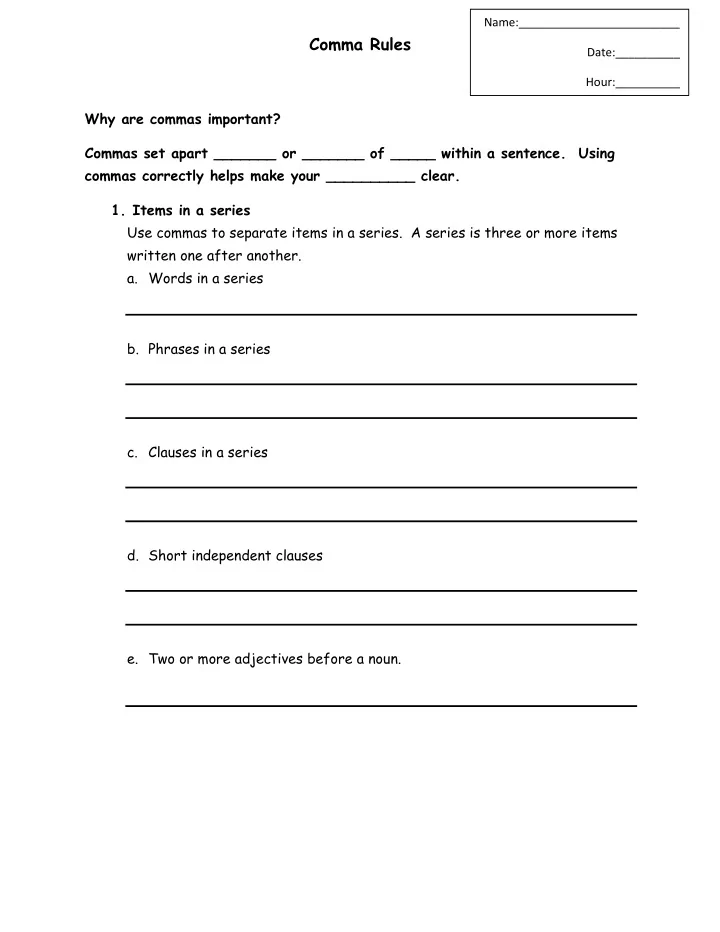

Name:_________________________ Comma Rules Date:__________ Hour:__________ Why are commas important? Commas set apart _______ or _______ of _____ within a sentence. Using commas correctly helps make your __________ clear. 1. Items in a series Use commas to separate items in a series. A series is three or more items written one after another. a. Words in a series b. Phrases in a series c. Clauses in a series d. Short independent clauses e. Two or more adjectives before a noun.
Grammar Guy Says… If all items in a series are joined by _____, _____, or _____, do NOT use commas to separate them. Grammar Guy Says… To determine if a comma should go between two _____________, try switching the order of the adjectives. If the sentence does not make sense this way, do not use a __________. 2. Compound Sentences Use a comma before and, but, for, nor, or, so, or yet when it joins independent clauses in a compound sentence. FANBOYS = F – for A – and N – nor B – but O – or Y – yet S – so 3. Interrupters Use commas to set off elements that interrupt the sentence. a. Words used in direct address
b. An appositive or appositive phrase describes or identifies another noun. Use commas to set off appositives and appositive phrases when they are not necessary to the meaning of the sentence. ___________________________________________ 4. Introductory Elements Use a comma to set off certain introductory elements. a. Mild exclamations such as well, oh, or why b. Introductory words such as yes and no c. Introductory participial phrases d. Two or more introductory prepositional phrases or one long one To remember all the reasons to use commas, think of the word LIES : L ists of items _____________________________________________________________ I ntroductions _____________________________________________________________
E xtra information _____________________________________________________________ S entences put together _____________________________________________________________ 5. Conventional Situations Use commas in certain conventional situations. a. Separate items in dates and addresses b. After the salutation of a personal letter c. After the closing of any letter Fini Finicky 5 cky 5 1. 2. 3. 4. 5.
Recommend
More recommend